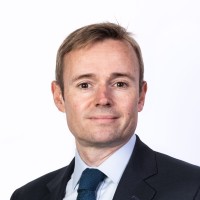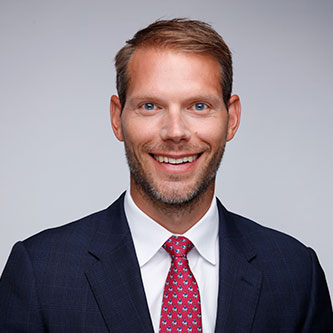RBC Capital Markets hosted an event in Frankfurt on “Navigating the Energy Transition in Germany - Opportunities and challenges of decarbonizing Germany and investing in emerging energy transition technologies”. The event was directed at private site clients and included a key note speech by Kunal Chandra, Chief Strategy and Sustainability Officer at RWE, as well as 3 thematic panels with high profile speakers.
Germany’s Strides and Stumbles in Energy Transition
“Is decarbonizing Germany a pragmatic path to the future, or is it a costly experiment? Ultimately, what will it take to eliminate about 700 million tons per annum of CO2 emissions from Germany, and in the end, is it going to be worth it?”
Kunal Chandra, Chief Strategy and Sustainability Officer at RWE, acknowledged both the difficulty and importance of these questions in his opening keynote address at RBC Capital Markets’ recent Energy Transition series.
After 80 years of stable business models and value drivers, the last 20 years have dramatically altered Germany’s energy system, highlighting the complexities of the transition.
Today, less than 50% of German electricity comes from fossil fuels. From 1990 to 2022, Germany reduced its emissions by almost 32%, while its GDP grew by about 50% and its population by approximately 5%.
However, Chandra also pointed out the limited progress beyond power generation, with a continued heavy dependence on fossil fuels. Coal, oil, and natural gas still dominate the energy mix, accounting for almost 80% of Germany's total energy supply.
Financial and Strategic Complexities
The financial challenges of the energy transition, including the high costs and investment requirements, are also considerable. Estimates suggest transitioning could cost between EUR 600-800 billion by the end of the decade. "The increase in capacity across all renewable technologies is between two and four times, and for more nascent technologies like hydrogen or EVs, increases can be up to 10 to 15 times," he explained, concluding that the road ahead is steep.
Achieving Net Zero Across the Entire Energy Mix
Germany's journey to net zero was the focal point of wider debate led by Ed Golder, Head of European Utilities & Renewables at RBC Capital Markets, and industry experts including Hanns Koenig, Managing Director of Aurora Energy Research; Marcel Münch, SVP Finance, M&A and Investor Relations at EnBW; Dr. Frank Reiners, Chief Financial Officer at Open Grid Europe (‘OGE’); and Marco Bartolini, Chief Financial Officer at Zhero.
Hanns Koenig, Aurora, emphasized the gap between Germany's ambitious energy targets – Net Zero by 2045, a fully decarbonized power sector by mid-2030s, 80% renewables by 2030 – and actual implementation, citing a string of challenges. “The government needs to move towards implementation, but this has gotten a lot harder with headwinds around higher financing costs and CapEx.”
“The energy transition is a vast and hugely complex process. You could call it a multi-generational project, probably one of the most ambitious ones that we pursued in Germany for a long time. And it requires a lot of angles to come together.”
MARCEL MÜNCH, ENBW
A Lack of Investment Incentivization
Zhero invests in a variety of projects to bring green energy from Africa - both green electric power and green hydrogen. Marco Bartolini highlighted the risk in development capital for such projects, and the need for initial investment to kickstart them, especially in more emerging regions. “You need to have somebody that puts that 1% to add strength, takes a risk at the beginning to ignite the process.”
Navigating the Opportunities and Challenges
In a separate discussion on Germany’s decarbonization opportunities & challenges, moderated by Ralph Ibendahl, Head, EMEA Transition, RBC Capital Markets, a panel of experts including Catrin Jung, Head of Offshore Wind, Vattenfall; Pierre Alan Graf, CEO, GETEC; and Alexander Aksenov, EVP Strategy & Corporate Development, Uniper, agreed that the country’s potential is vast, but challenges abound to accelerate efforts.
For Vattenfall’s Catrin Jung, tapping into this vast potential requires tighter collaboration between all stakeholders. “The one part that we are not good at in Germany is being able to connect politics with decision makers in the industry – there's such an inherent mistrust.”
Pierre Alan Graf, GETEC’s CEO, echoed concerns over the complexity of the challenge and lack of a comprehensive and collaborative approach. “Day-to-day industrial reality is not as easy as just switching one fuel to another or switching one equipment to another – there’s a lot of implications in there and this requires collaboration.”
A lack of investment incentivization
However, the lack of regulation in place to incentivize investments into clean capacity is a challenge, Alexander Aksenov stressed. “A clear regulatory framework that incentivizes investments in clean dispatchable power is acutely required - not only investments into gas fired power plants which may run on hydrogen later, but also the technologies like carbon capture storage. Carbon capture storage can be a very big and very instrumental element to decarbonize the power sector.”
Investing in Emerging Energy Transition Technologies
Finally, in a discussion on investing in emerging energy transition technologies, moderated by Andrea Gerhäusser, Director, Investment Banking, RBC Capital Markets, a panel of experts including Felix Colsman, CEO, DAH Gruppe; Daniel Saxena, CFO, SFC Energy AG; and Thomas Kalthoefer, Investment Director, DWS, discussed the potential of new technologies such as hydrogen to speed up decarbonization.
When it comes to emerging green energy tech, cost also remains a key issue, stressed Daniel Saxena, CFO at SFC Energy, a producer of hydrogen and direct methanol fuel cells for stationary and mobile hybrid power solutions.
It could take another 10 or 20 years for hydrogen to be cheaper, he noted. “We do sell a lot of hydrogen fuel cells, but into applications where people need this specific energy source. In recent years people did not buy it because it was a fuel cell, people bought it because it has certain USPs - and that's off grid power in certain regions. That's when they're willing to pay the price for risk.” Additionally, most of the hydrogen produced now is grey and therefore does not qualify yet as ‘green energy.’
“Hydrogen is going to happen, but it's probably going to take a little bit longer and it really needs to come down in cost.”
Daniel Saxena, SFC Energy CEO
Risk factors hindering progress
Investments in new technologies are also hindered by the perception they are very risky, yet the needs are huge. DWS’s Thomas Kalthoefer pointed out that investing in the energy transition has been restricted due to the difficulty of finding business models as advanced as necessary to be investible. “You also need to build an exit case in 7, 8, 9, 10 years’ time. And a lot of the cases we see today are too early stage to create that case necessarily.”
As a result, DWS is setting up a separate family of funds to invest in those earlier stage, lesser developed technologies that will transition to becoming infrastructure.
A circular approach to Net Zero
For Felix Colsman, the CEO of DAH, a producer of a biomethane that operates 22 biogas and biomethane plants outside Berlin, integration is the next step required to drive towards Net Zero.
“We focus on the circle so that we have a closed loop from all the inputs and the outputs. We’re also one of the largest farming companies, so when we produce biomethane, we use the input from the fields - it’s run through a stable, goes directly into a plant, and then goes back to the fields. This circular loop is key in order not only to achieve Net Zero, but to be negative in the total CO2 footprint in our company.”


